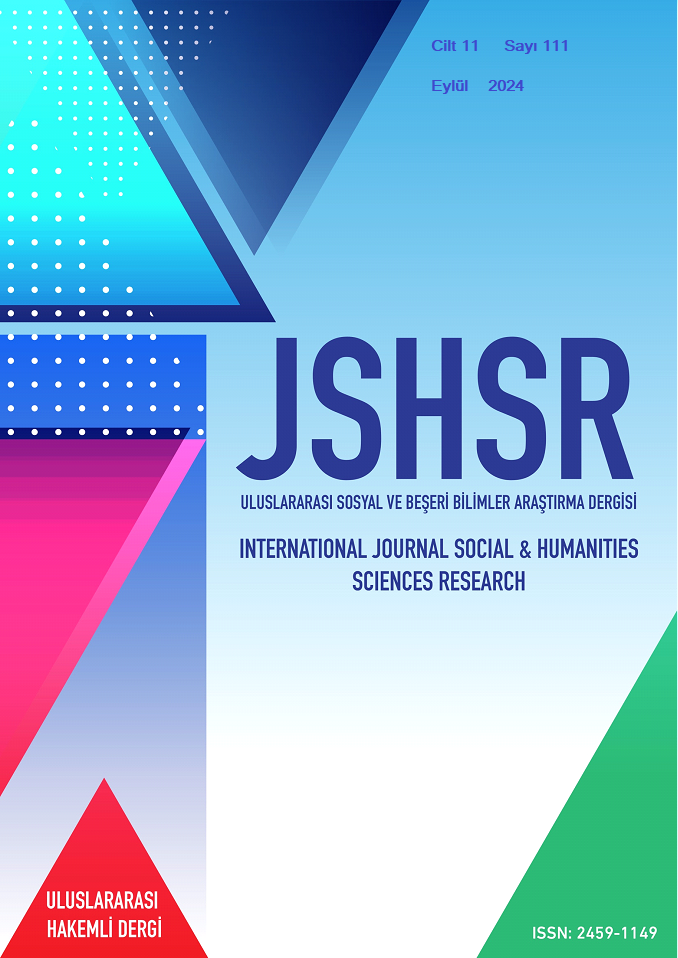The Schadenfraude Effect in Sports Management: A Conceptual Investigation
DOI:
https://doi.org/10.5281/zenodo.13864023Keywords:
Schadenfreude, Management, Sports ManagementAbstract
Human relations have always had an important place throughout the historical process. The necessity of managing human relations effectively and efficiently reveals the need for the concept of management. The concept of management plays an important role in terms of the desire to ensure social peace, welfare and development. The concept of sports management is accepted as one of the sub-branches of the concept of management. Ensuring effective and efficient sports management can provide many benefits not only to the functioning of sports organizations and organizations but also to society. Sports management can be defined as the process of managing human and material resources effectively, efficiently and systematically, in line with certain objectives of sports organizations and activities. In daily life, people generally turn to the negativities experienced by other individuals in order to get rid of their failures and to feel good about themselves. This mindset can be explained by a concept known as schadenfreude, which has become increasingly popular and frequently encountered in recent years. This concept carries a complex and human aspect, expressing the secret pleasure felt at someone's misfortunes. Especially in sports management, in case of success or failure in individual or team sports, a feeling of grudge, hatred and jealousy occurs in the fans of the rival team towards success, while in case of failure, feelings of joy, happiness and relief occur. In this study, a conceptual analysis was made on the effect of the concept of schadenfreude, which expresses the feeling of happiness felt by someone else's sadness, on sports management.
References
Akdemir, A. (2012). İşletmeciliğin Temel Bilgileri. Ekin Basım Yayın Dağıtım.
Atabeyoğlu, C. (1991). Türk spor tarihi ansiklopedisi. Fotospor.
Atıgan, F. (2011). Yönetim ve Organizasyon. Nobel Yayın Dağıtım.
Baransel, A. (1993). Çağdaş Yönetim Düşüncesinin Evrimi. İÜ İşletme Fakültesi Yayını.
Barthes, R. (2007). What is sport? Yale University Press.
Bolat, T., Seymen, O. A., Bolat, O. İ.& Erdem, B. (2008). Yönetim ve Organizasyon, Detay Yayıncılık
Can, H. (2001). Yönetim ve Organizasyon. (Editör: Salih Güney). “Yönetim Bilimi ve Tarihçesi”, Nobel Yayın Dağıtım.
Cankalp, M. (2005). Sporda yönetim ve organizasyon (2. Baskı). Nobel Yayın Dağıtım
Combs, D. J., Powell, C. A., Schurtz, D. R., & Smith, R. H. (2009). Politics, schadenfreude, and ingroup identification: The sometimes happy thing about a poor economy and death. Journal of Experimental Social Psychology, 45(4), 635-646.
Daft, R. L. (2010). New Era of Management, International Edition, Cengage Learning.
Eryılmaz, B. (2014). Kamu Yönetimi. Okutman Yayıncılık.
Fişek, K. (1998). Devlet Politikası Ve Toplumsal Yapıyla İlişkileri Açısından Spor Yönetimi: Türkiye’de ve Dünya’da. Bağırgan Yayınevi
Gök, Y. ve Sunay, H. (2010). Türkiye ve Fransa’da Uygulanan Spor Yönetiminin Kamu Yönetimi Açisindan Karşilaştirilmasi. Spormetre Beden Eğitimi ve Spor Bilimleri Dergisi, 8(1), 7-16.
Hickman, T., & Ward, J. (2007). The dark side of brand community: Inter-group stereotyping, trash talk, and schadenfreude. ACR North American Advances
Hornsey, M. J., & Jetten, J. (2004). The individual within the group: Balancing the need to belong with the need to be different. Personality and Social Psychology Review, 8(3), 248-264
Koçel, T. (2003). İşletme Yöneticiliği, Beta Basım Dağıtım ve Yayınevi.
Küçük, V., & Acet, M. (2015). Bir kişilik özelliği olarak suçluluk ve sporla ilişkisi. Dumlupınar Üniversitesi Sosyal Bilimler Dergisi (7).
Krotee, M., & Bucher, C. (2006). Management of Physical Education and Sport. Open University Press. The McGraw-Hill companies, Order Services, PO Box 182605, Columbus, OH 43218-2605
Leach, C. W., Spears, R., Branscombe, N. R., & Doosje, B. (2003). Malicious pleasure: schadenfreude at the suffering of another group. Journal of personality and social psychology, 84(5), 932.
Leach, C. W. ve Spears, R. (2009). “Dejection at in-Group Defeat and Schadenfreude Toward Second-And Third-Party Out-Groups”. Emotion, 9(5), 659-665.
Mahony, D. F., & Howard, D. R. (1998). The impact of attitudes on the behavioral intentions of sport spectators. International sports journal, 2(2), 96-110.
Memduhoğlu, H. B. (2010). Yönetimde Yeni Yaklaşımlar. Pegem Akademi.
Sawada, M., ve Hayama, D. (2012). “Dispositional Vengeance And Anger On Schadenfreude”. Psychological Reports, 111(1), 322-334.
Schermerhorn, R. J. (1996). Management. 5th Edition, John Wiley&Sons Inc.
Sunay, H. (2017). Spor yönetimi. Gazi Kitapevi.
Sümer, R. (1990). Türkiye’de spor yönetiminin tarihsel gelişimi ve sporda demokrasi. Türk Spor Vakfı.
Topaloğlu, C. (2011). Yönetim Kuramları ve Örgüt İçi Çatışmalar. Girişimcilik ve Kalkınma Dergisi, 6(1), 249-265.
Van Dijk, W. W., Ouwerkerk, J. W., Wesseling, Y. M., & van Koningsbruggen, G. M. (2011). Towards understanding pleasure at the misfortunes of others: The impact of self-evaluation threat on
schadenfreude. Cognition and Emotion, 25(2), 360-368.
Downloads
Published
How to Cite
Issue
Section
License
Copyright (c) 2024 INTERNATIONAL JOURNAL OF SOCIAL HUMANITIES SCIENCES RESEARCH

This work is licensed under a Creative Commons Attribution 4.0 International License.


